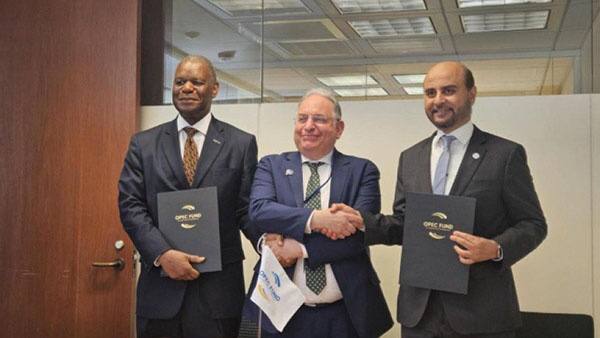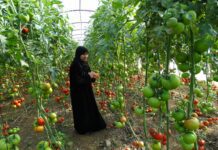 The OPEC Fund for International Development (OFID) has signed a new agreement with the UN World Food Programme (WFP) to strengthen humanitarian efforts and expand food assistance in Syria, as the country advances its national recovery after years of conflict.
The OPEC Fund for International Development (OFID) has signed a new agreement with the UN World Food Programme (WFP) to strengthen humanitarian efforts and expand food assistance in Syria, as the country advances its national recovery after years of conflict.
According to the Fund, the $500,000 grant will help finance emergency food assistance reaching about 1.6 million people each month. The initiative aims to meet the needs of vulnerable families while stimulating the local economy by supporting Syrian producers and markets.
The agreement was signed in Washington, DC, on the sidelines of the 2025 Annual Meetings of the International Monetary Fund and the World Bank, in the presence of Syrian Finance Minister Muhammad Barnieh. “I was honored to attend the signing of the grant agreement to support the expansion of the WFP’s activities in Syria,” Barnieh said in a statement posted on his official Facebook page.
Building Resilience Through Sustainable Recovery
Abdulhamid Alkhalifa, Director General of the OPEC Fund, emphasized that food security is central to the organization’s mission. “Our goal is to foster and mobilize efforts for building communities’ resilience and sustainable recovery,” he said.
Alkhalifa explained that the partnership with the WFP reflects a shared commitment to combating hunger and strengthening food systems capable of achieving long-term self-sufficiency. WFP officials said the funding would help sustain the agency’s operations in Syria, where millions continue to face severe food shortages and economic hardship.
A Step Toward Strengthening Humanitarian Cooperation
This agreement comes at a critical time, as Syria continues to work toward securing its food supply and rebuilding essential systems disrupted by conflict and sanctions. According to UN estimates, 16.5 million people inside the country remain in need of humanitarian assistance.
Observers view the OPEC Fund–WFP cooperation as a step toward creating an integrated international support network to enhance Syria’s food security and bolster recovery. Analysts note that such partnerships are vital for helping communities transition from emergency relief to sustainable development.
The new initiative underscores Syria’s efforts to strengthen international partnerships, improve food accessibility, and lay the groundwork for a resilient agricultural and economic recovery








